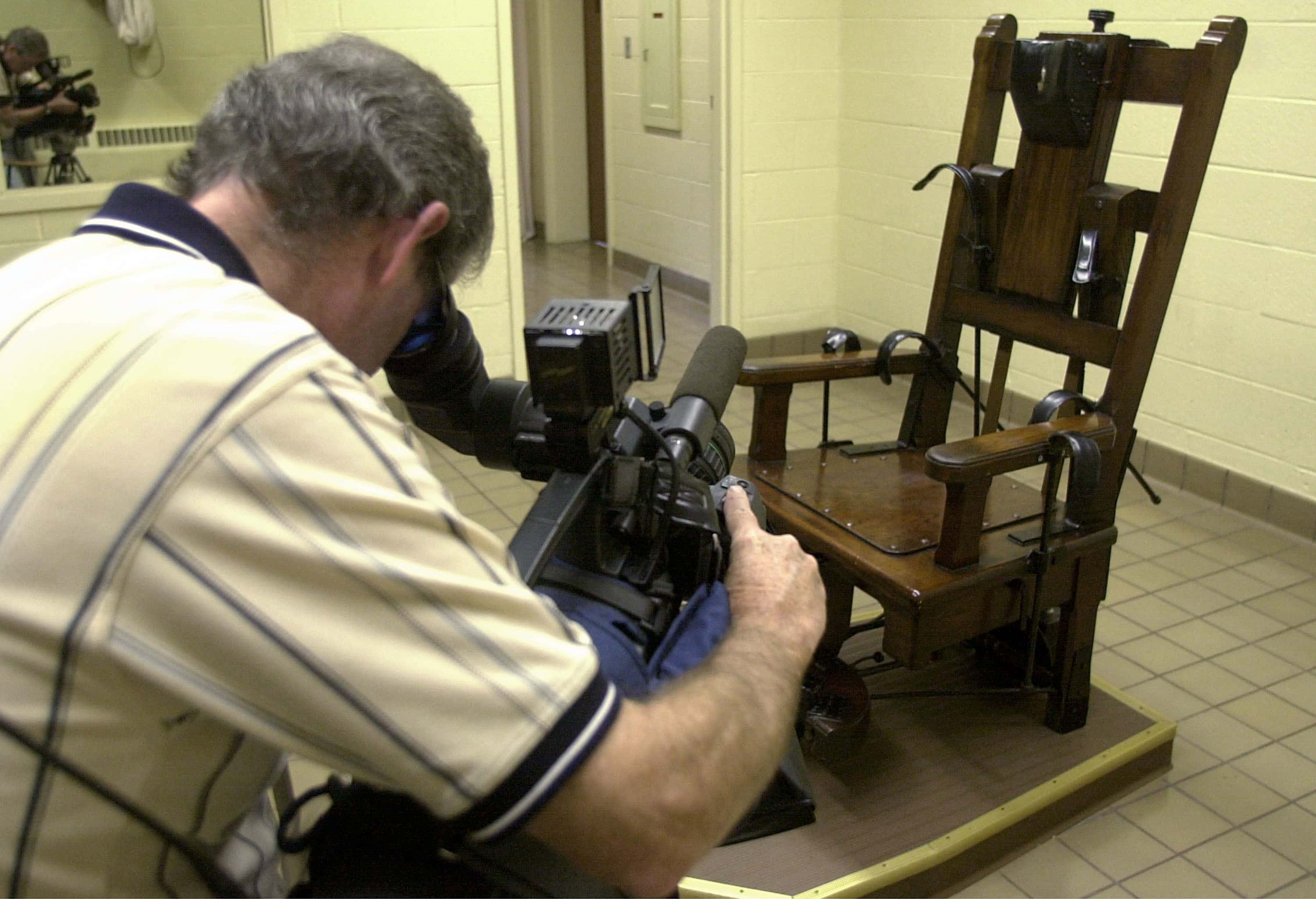SC Senate revives firing squad for execution amid lethal injection shortage, makes electric chair default way
![[Representational Image] (Getty Images)](https://d2a0gza273xfgz.cloudfront.net/525459/uploads/e27803a0-7cab-11eb-abde-81b48ca9d20a_1200_630.jpeg)
South Carolina State senators on Tuesday, March 2, voted to approve a bill designed to resume executions in the state by adding firing squads or electrocution as alternative options to execute death penalty if lethal injection drugs are in shortage. The development came after nearly a decade’s pause in executions in the Palmetto State. Under the new bill, those sentenced to death will be forced to choose between the electric chair and a firing squad if lethal injection drugs were not available.
The state, where death penalty is legal, has 37 people on death row but is unable to purchase drugs needed for lethal injection to carry out the executions. Last November, the Associated Press cited an attorney for the South Carolina’s corrections department penning a letter to the state Supreme Court that the agency failed to carry out the execution of Richard Bernard Moore because of lack of drugs, something it hadn’t stocked since 2013. A bipartisan group of lawmakers voted in favor of the measure proposed as an amendment to an execution bill that would make the electric chair the default method of execution. The firing squad amendment was given a voice vote.
RELATED ARTICLES
Firing squads are a 'humane' alternative to lethal injection following shortage of drugs, says expert
On Tuesday, March 2, the state senators approved the bill with a 32-11 vote. It will now go through a routine vote before it can be passed in the Senate and move to the GOP-majority House of Representatives. SC Governor Henry McMaster, a Republican, will “proudly” sign the legislation into law, his spokesperson said in a statement to CBS News.

Differing opinions among state lawmakers
The bill, which has been introduced by GOP lawmakers, was first penned to require the electric chair as the only option for execution if lethal injection was not available. But Democratic state Senator Dick Harpootlian helped in introducing an amendment whereby the inmates could also choose death by firing squad, which some feel to be more humane than the electric chair, CBS News reported.
Supreme Court Justice Sonia Sotomayor said in a dissenting opinion in 2017 that while some may find death by firing squad to be regressive, it brings near-instant death and may be “comparatively painless”. Another SC Democratic Senate member Karl Allen opposed the bill and warned against resuming executions and cited racial disparities among those given the death sentence. As per South Carolina Department of Corrections, 208 of the 282 people who have been executed in South Carolina since 1912 were Black.
"Unfortunately, we have ignored the statistics which indicate that our implementation of the death penalty and electrocution is having a disparate impact among poor people and African Americans,” Allen said, pointing out the case of George Stinney, a 14-year-old who was executed in 1944 and his conviction was nullified 70 years after his death. The senator also called the idea of having firing squads “inhumane” and said “it does not meet the 2021 societal norms”.
State GOP Senator Shane Martin, who is also the chairman of the Senate Corrections and Penology Committee, said the bill was not about whether South Carolina has a death penalty, but about making the death penalty law functional. “There's no need to have a law if we can’t enforce the law,” CBS News cited him as saying.
Like many other states that still carry out death penalty, SC has faced a problem in buying lethal injection drugs since pharmaceutical companies refuse to sell drugs they know will be used in carrying out executions, said Robert Dunham, executive director of the DC-based Death Penalty Information Center, a group that criticized application of capital punishment in the US, CBS News added.
Another state GOP Senator Greg Hembree, one of the bill’s co-authors and a former prosecutor who witnessed two executions by lethal injections, told CBS News: “They’re awful. There's nothing to be happy about when this sort of a sentence is carried out, but you want— the government should be as humane in doing it as possible if we’re going to do it.” The last time South Carolina executed a prisoner was in 2011 and it happened by using lethal injection. The last time someone was executed through electrocution in the state was in 2008.
There are only three states in the US that allow firing squad death penalty and they are Utah, Oklahoma and Mississippi and South Carolina will be the fourth in the list. It is also one of the nine states that use the electric chair, the other eight being Alabama, Arkansas, Florida, Kentucky, Mississippi, Oklahoma, Tennessee and Virginia.










